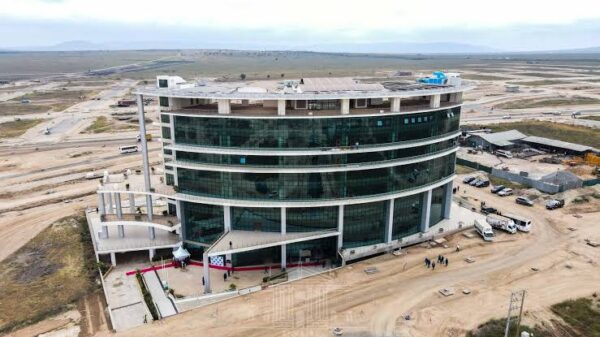ARUSHA, Tanzania, July 1 – The five East African Community partner states on Thursday made history by ceding some of their sovereignty in return for a larger, integrated market, accelerated economic growth and deeper cooperation.
July 1 marked the day when borders in the East African countries became ‘figuratively erased’ as goods, capital, labour and people begun moving freely and had the right to reside and work in any of the countries without being discriminated.
But while some may want to look at the process of transforming the region into a Common Market in negative light, EAC Director General for Customs and Trade Peter Kiguta prefers to see regional integration as an act of pooling sovereignty to create space and flexibility required for social, economic and political growth.
“Integration is about finding a middle ground; each partner state has to give away something for the region. It’s not easy to integrate if you have to retain your full independence,” he told Capital Business during an interview in Tanzania.
The coming into force of the EAC Common Market Protocol means that the over 126 million people from Kenya, Uganda, Tanzania, Burundi and Rwanda will no longer be restricted to their smaller segmented markets.
It also means that barriers to trade will be eliminated while national policies, laws and systems will be harmonised across the region for the mutual benefit of all.
It will also call for the establishment of institutions and agencies and the hiring of skilled personnel to man those institutions in order to deliver services and outputs that are in line with the Treaty establishing the EAC.
Granted, this is a huge task that cannot be accomplished in a day or a week. This is what informed the provision of annexes which outline how the principles in the Common Market Protocol will be implemented and in what time lines.
For instance, partner states are required to take measures to secure the protection of cross border investments within the community ‘two years after coming into force of the Protocol.’
The EAC governments also appreciated that it would not be easy to align national laws with those of the region and therefore provided that each member should strive to progressively harmonise their laws to remove trade disparities to facilitate the free movement of goods, capital, services and labour.
Despite this provision, Mr Kiguta said it is illegal for a country to continue applying its national laws and thus every country must strive to amend its legislations and ensure that they are in line with those of the region.
This is because it would be difficult for the EAC Secretariat or any other body to enforce the regional laws, since national Parliaments have control of their legislations and doing so would be infringing on the rights of the respective National Assemblies.
“What is therefore important is that we urge partner states to ensure that they expedite that process so that the implementation of the common market can be smooth. It is that spirit that we are looking for because we (Secretariat) are limited and that’s beyond our mandate,” Mr Kiguta explained.
However, he said they are banking on the member states to live by the words and implement measures that they say they will and comply with the laws.
“Every country has to report on its progress so it becomes embarrassing for a country when it has not done what it said it would. That puts enough pressure on it and forces it to conform,” he added.
For countries that are still grappling with issues of political fears or weak economies, the EAC Treaty provides for the ‘Principle of Asymmetry’ which means countries which are better off economically can move ahead and implement regional programs while those that are unable can be supported to do so by the Community.
The East Africa business community is however not very enthusiastic about the operationalisation of this Protocol and has time and again asked their governments to speed up the resolution of sticky issues that could hamper the integration process.
The use of identity cards as ideal travel document to facilitate the free movement and the right to own land in any of the EAC countries are still contentious issues that have not been fully agreed on by the member states.
In May, traders from the five business associations in the region adopted a common position which they said would enable them to lobby their governments to address issues that affect their competitiveness.
Led by the Kenya Association of Manufacturers they identified the harmonisation of tax and investment regimes, speedy implementation of decisions and the strengthening of dispute resolutions as some of the key issues that the business fraternity want executed.
In response, the East African governments have acknowledged that the elimination of Non Tariff Barriers for instance will remain the biggest challenge as the region moves to become a single market but pledged to deal with the issue.
Such measures involve the roll-out of massive sensitisation campaigns and training of agents who will be in charge of the implementation so that they can play a facilitative role in the process.


































